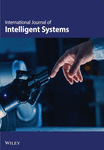Is the success of fuzzy logic really paradoxical?: Toward the actual logic behind expert systems
Abstract
The formal concept of logical equivalence in fuzzy logic, while theoretically sound, seems impractical. The misinterpretation of this concept has led to some pessimistic conclusions. Motivated by practical interpretation of truth values for fuzzy propositions, we take the class (lattice) of all subintervals of the unit interval [0, 1] as the truth value space for fuzzy logic, subsuming the traditional class of numerical truth values from [0, 1]. The associated concept of logical equivalence is stronger than the traditional one. Technically, we are dealing with much smaller set of pairs of equivalent formulas, so that we are able to check equivalence algorithmically. The checking is done by showing that our strong equivalence notion coincides with the equivalence in logic programming. © 1996 John Wiley & Sons, Inc.




